Kathy Vorce huddled in a U-Haul truck with her 24-year-old son, 21-year-old daughter, and five cats as Hurricane Helene passed overhead. The heavy rains turned the Doe River that wove through the town of Roan Mountain into a torrent. The Vorces’ rental home on Main Street flooded along with most of the surrounding area.
Vorce and her family escaped the rising waters thanks to that U-Haul truck, which they had used to retrieve belongings from storage the day before. With her home given up for lost and her husband traveling for work, she had nowhere to go. With spotty service, Vorce scoured for updates on her phone when she read that the First Baptist Church of Roan Mountain was accepting refugees from the storm.
“And I went, oh, my goodness, I know where that is. I had come to a service here one time,” Vorce told The Daily Wire in the church library. “I said, okay, guys, we’re gonna go there and we’re gonna tell daddy that’s where we are and, you know, at least they’ll have toilets there, they’ll have people there, and it should be good.”
Tim Pearce/The Daily Wire
Helene made landfall in Florida as a category four hurricane. By the time it reached Tennessee on September 27 it had downgraded to a tropical storm. But the rain compounded on heavy rains in preceding days and caused massive flooding across east Tennessee beyond anything seen there in nearly 30 years.
Locals compared Helene’s flooding to the flood of 1998, which caused widespread damage across the community, destroying the First Baptist Church building. After the flood, the church was rebuilt on the hill where it sits today, safe from flooding and at the center of the community’s aid efforts.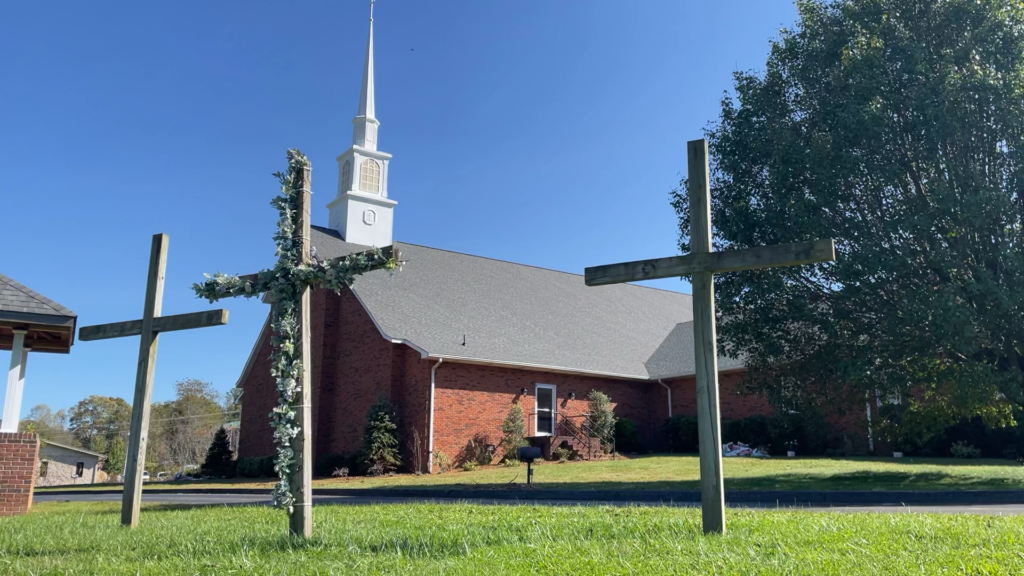
Tim Pearce/The Daily Wire
Pastor Geren Street has managed those efforts for about two weeks. The church has been a home for about half a dozen families who lost their homes to flooding, and became the nexus for area recovery efforts after the Red Cross station set up at the local high school lost power.
On the morning of the flood, Pastor Street noticed that the Doe River, which ran behind his house, had started to swell. Within hours, it was in his backyard. He loaded his dogs into his truck and drove to the church.
The church began to feed people almost immediately, using food purchased for a homecoming celebration that was supposed to take place that weekend.
“We had already bought the hams and meats and stuff that we were going to cook, so we said we’ll just go ahead and use them tonight. Cook a hot meal for people that need it,” Street told The Daily Wire.
“About Saturday at lunch time, we had been asked if we could start being a place to gather supplies and start getting it out to people that needed it, which, of course, the whole reason we started was to love our neighbor,” Street said. “It just began to pick up more and more momentum from there.”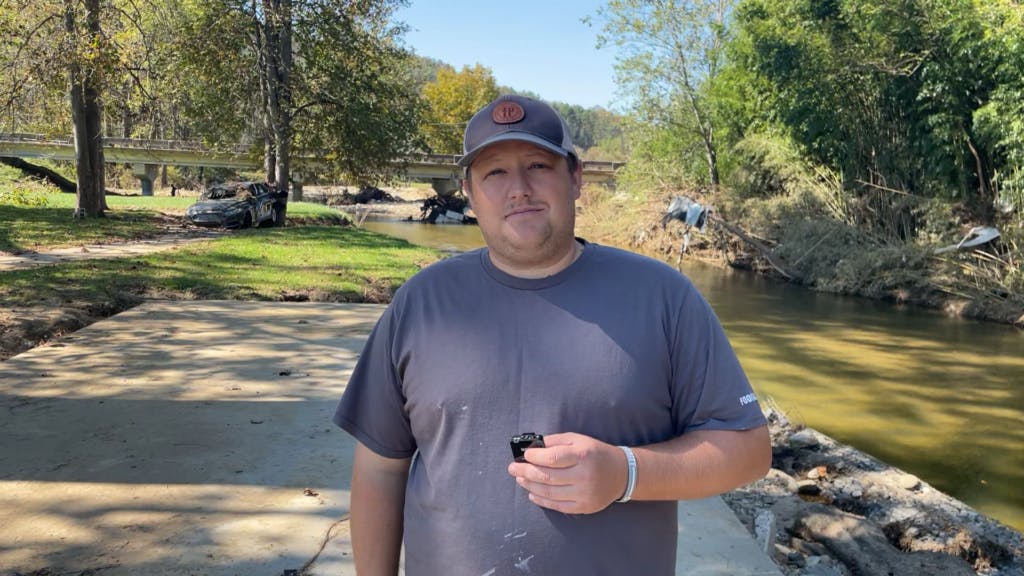
Geren Street (Tim Pearce/The Daily Wire)
Street’s congregation on Sundays numbers about 100 people. Since Helene, the church has been feeding several times that number on a daily basis — Street estimates that in the course of three days, roughly 1,200 families had grabbed a hot meal at the church.
The Federal Emergency Management Agency (FEMA) has been absent from Roan Mountain. Nearly two weeks passed before a FEMA worker arrived at the church to deliver forms impacted residents can use to apply for assistance. It was the first and only interaction the First Baptist Church had with FEMA.
The residents of Roan Mountain were left largely to fend for themselves in the first few days after the storm, though they were helped by the officers of the Carter County Sheriff Department and crews from the Tennessee Department of Transportation.
After the storm passed and the floodwaters receded, the extent of the damage across Roan Mountain was still being assessed. The flood damaged scores of homes, gashed roads, demolished bridges, toppled power lines, and left residents of Roan Mountain shocked and desperate.
In the immediate aftermath, the residents of Roan Mountain looked after themselves. Anyone with heavy equipment worked to clear roads, rebuild bridges, and rescue those trapped by flood. Orange cones and caution tape now mark spots where the flood took chunks out of the town’s streets. In some patches, the road has disappeared altogether, only to be replaced by dirt and rocks by locals with the equipment to manage the rushed repairs.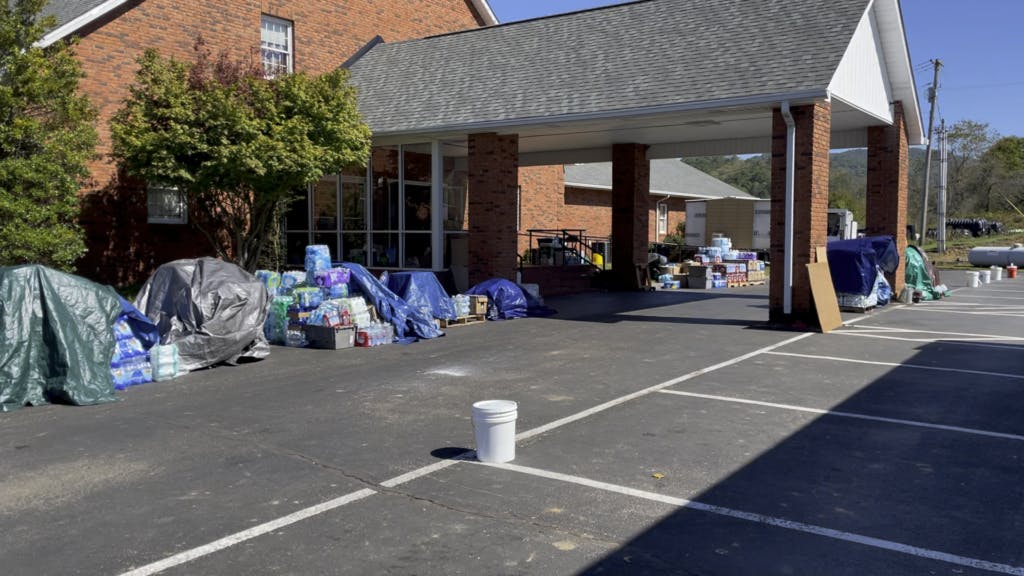
Tim Pearce/The Daily Wire
Aid and recovery has been largely a volunteer operation. With schools in the area shut down, educators and administrators have made up a heavy percentage of volunteers. Erica Preswood, a principal for Carter County Schools, has organized school staff volunteering at First Baptist.
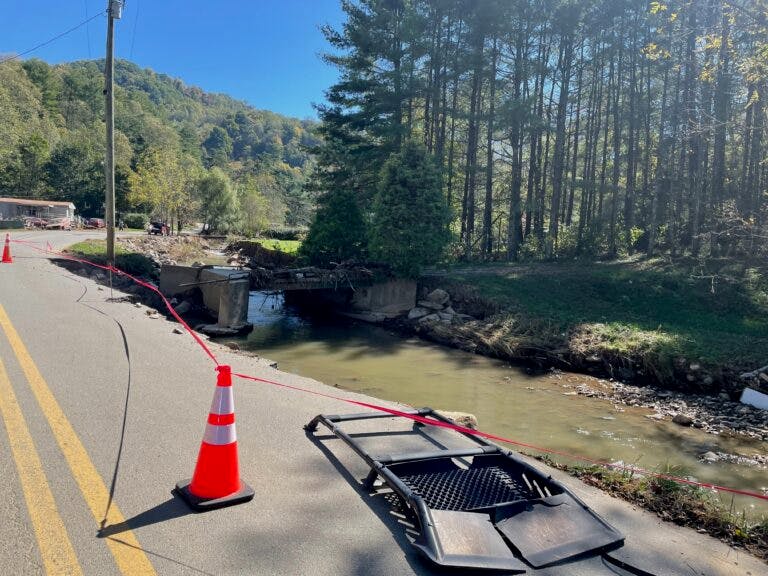
Tim Pearce/The Daily Wire
Preswood lives in Roan Mountain and, while her home is located high enough to have avoided serious flood damage, she still has no power nearly two weeks after the storm.
“We have no power or water. Cell phone signal is very limited. The Internet is nonexistent. But, you know, we count ourselves fortunate. It’s just an adventure at this point,” Preswood said.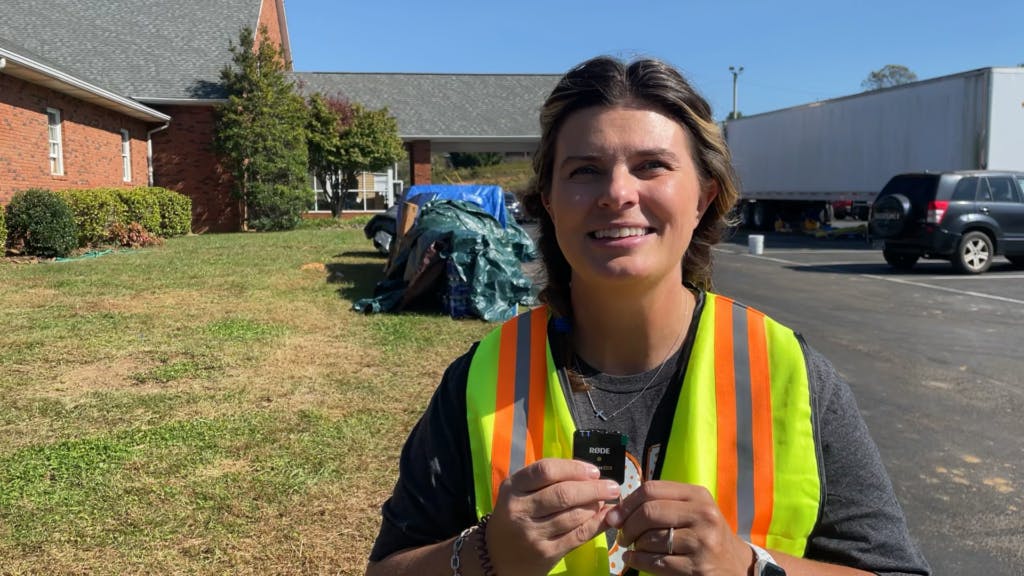
Erica Preswood (Tim Pearce/The Daily Wire)
Street and Preswood are both concerned about the future of Roan Mountain, and worried about how recovery and rebuilding will play out the months and years to come. While aid is plentiful now, both worry that donations will not continue at the current levels much longer while the need in the area remains great.
Housing may be the most daunting long-term issue. It was already a concern among locals who have seen the price of property skyrocket as people have moved into Roan Mountain in recent years. Street said the price of a house he and his wife had looked at purchasing in 2019 had doubled in five years – and that was before the storm rendered dozens of homes unlivable.
With so many houses lost to the flood, and few people with insurance to help rebuild, the situation is dire, especially with winter approaching. Street is concerned that people may be forced back into homes not suitable to live in.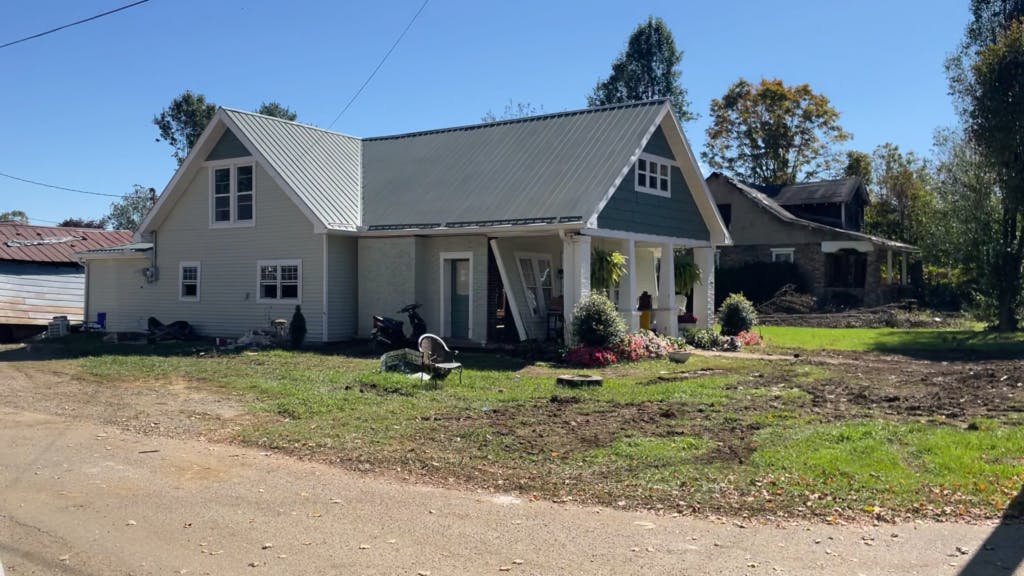
Tim Pearce/The Daily Wire
Some residents are moving out of town altogether. One man who lost his home to the flood and has lived at the church since plans to move to Florida with his sister. Vorce wants to move her family to Manassas, Virginia, where her other daughter lives.
“I would love to stay here, but our situation would likely not allow us to find a good rental. We have the cats, which can be an issue. And poor credit, which is another issue,” Vorce said.
Despite the grave situation the residents of Roan Mountain have found themselves in, the community has rallied around a mutual concern for each and an acute sense that, lacking the resources of wealthier and more urban areas, they must look after themselves.
“That’s one of the things about people who live in the Appalachia region, a lot of them have tractors and excavators and skid steers and chainsaws. And there are guys that just, when there’s a need, guys and gals go out there to work, to help,” Street said.
“This was always a close knit community,” Street said, “but it’s a much closer knit community since September 27. I mean, absolutely. And it was people in this community with the resources they had doing what they could do in order to meet people’s needs.”
No comments:
Post a Comment